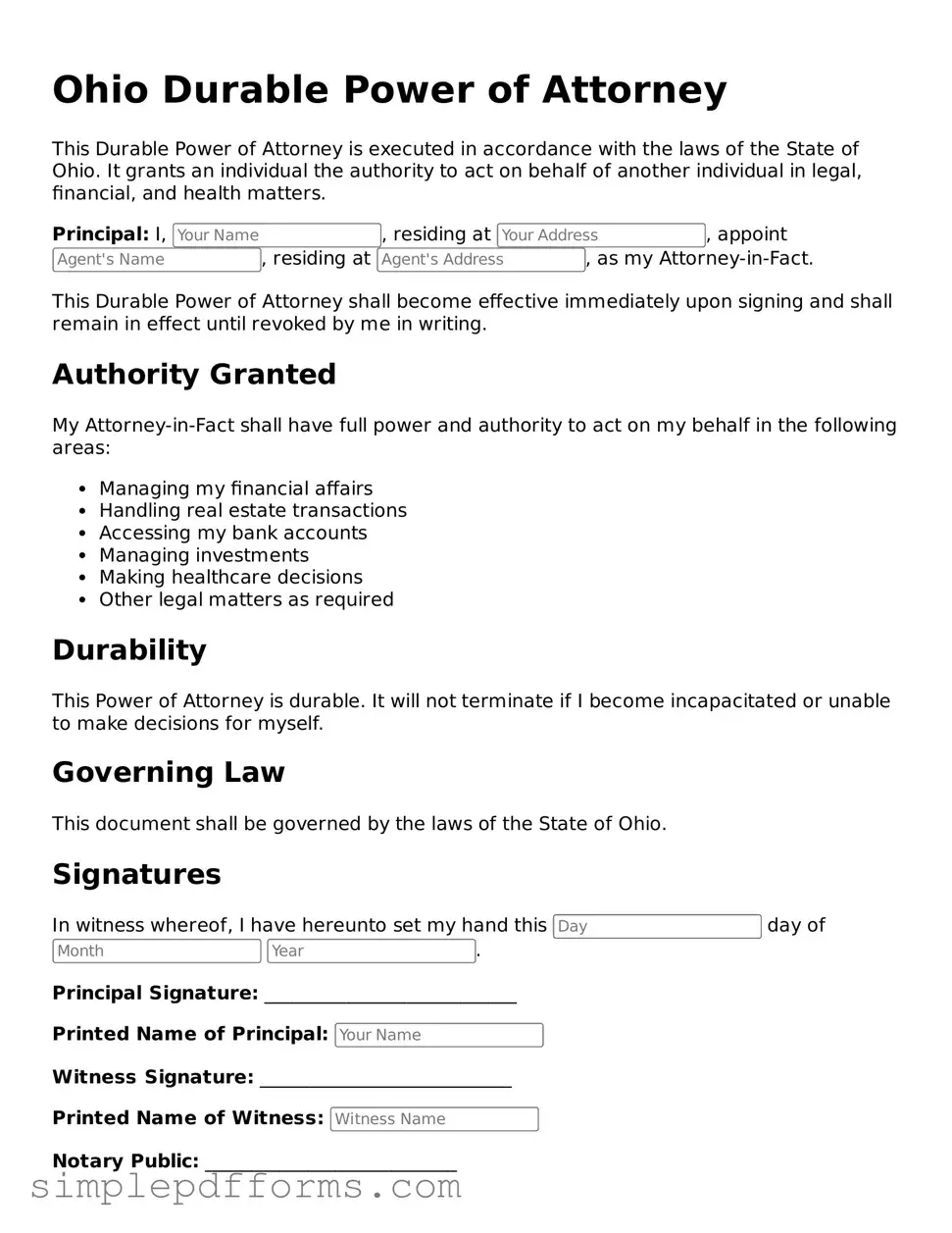Attorney-Verified Durable Power of Attorney Document for Ohio State
The Ohio Durable Power of Attorney form is a legal document that allows an individual to appoint someone else to make decisions on their behalf regarding financial and legal matters. This authority remains in effect even if the individual becomes incapacitated. Understanding how to properly complete this form is essential for ensuring that your wishes are respected when you can no longer communicate them yourself.
Open Durable Power of Attorney Editor Now

Attorney-Verified Durable Power of Attorney Document for Ohio State
Open Durable Power of Attorney Editor Now

Open Durable Power of Attorney Editor Now
or
Get Durable Power of Attorney PDF Form
Your form is waiting for completion
Complete Durable Power of Attorney online in minutes with ease.